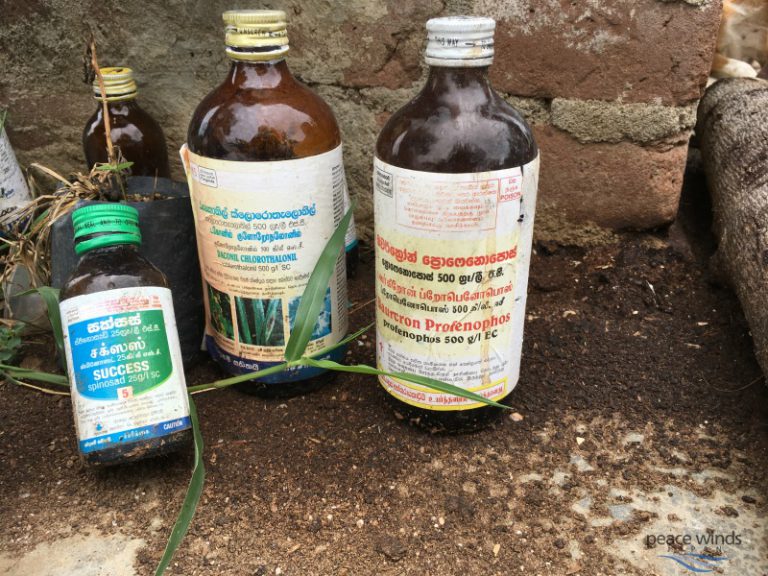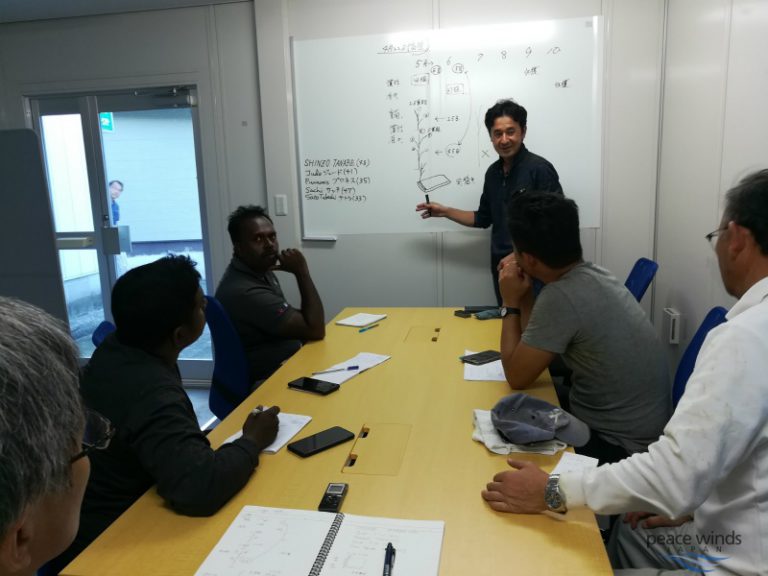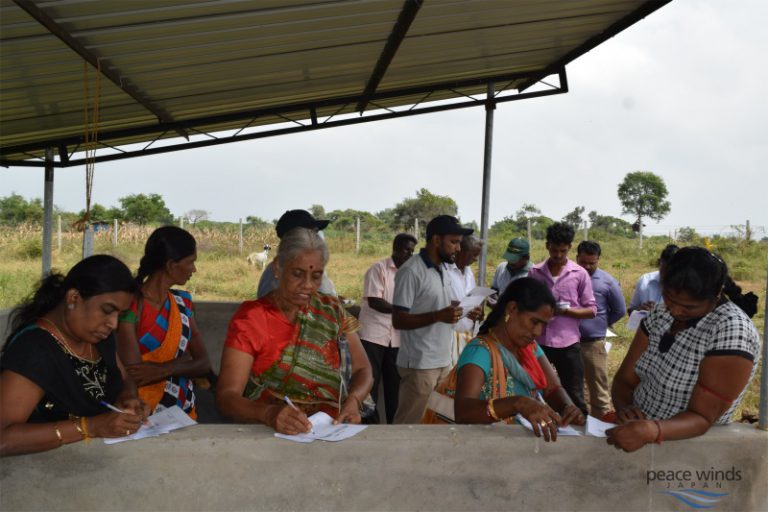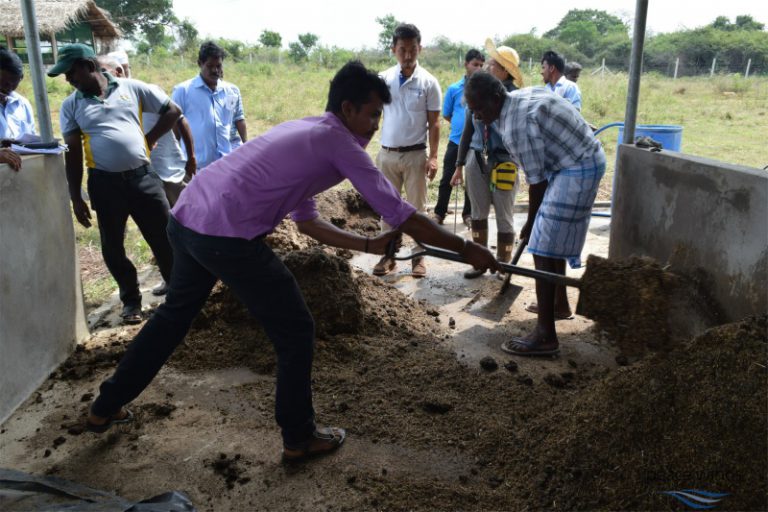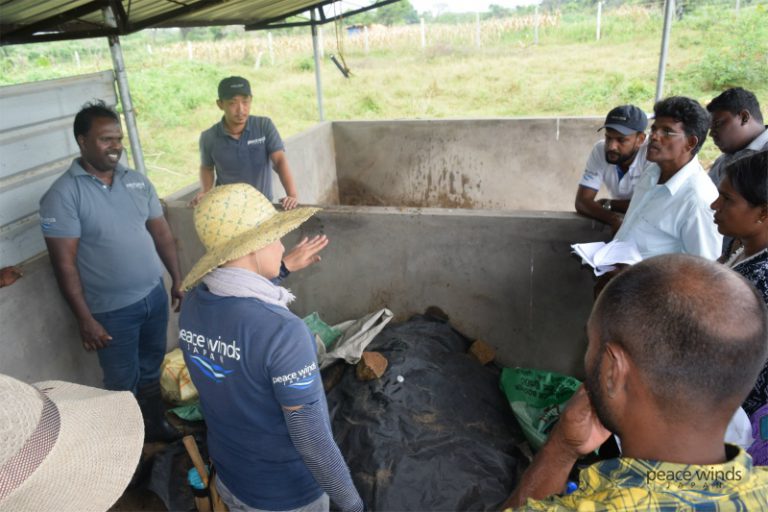Covid-19 lockdown accelerated the need for organic farming using compost in Sri Lanka
“I made it like you taught me and it’s properly hot!” a farmer woman proudly shows us the compost she created.
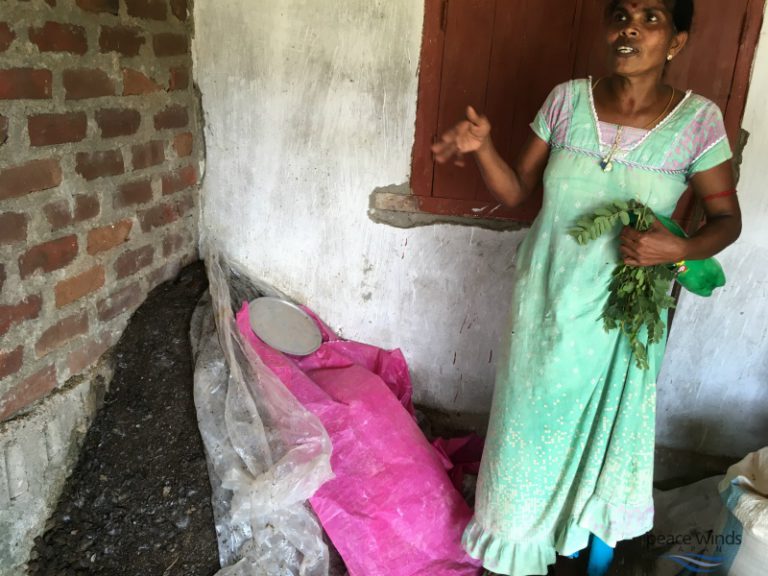
Most Sri Lankan farmers have always relied on chemical fertilizers so many have the mentality that they can’t farm without chemical fertilizers. Not only this, because of the tropical climate, the country is prone to pests all year round, and rainfall can easily cause weeds to grow out of control. This means that most farmers uses large amounts of pesticides and herbicides. Chemical fertilizers were also distributed by the government for free during elections further increasing use throughout the country. This created a vicious cycle in which the soil was exhausted and crops could not grow unless more chemical fertilizer was applied.
The “Promotion of Organic Agriculture” program, one of the three pillars of the “Project to Support the Rehabilitation of Farmland through the Development of Agricultural and Water Conservation Facilities in the Trincomalee Province” was launched in September 2019. This project has provided practical training in organic farming methods, business training to foster a business mindset, as well as support for farm equipment.
Peace Winds has sent Mr. Tanabe of TANABE FARM, an organic farm in Jinsekikogen‒cho, Hiroshima Prefecture, to Sri Lanka every year since 2016. We also invited Sri Lankan farmers to Japan in 2019 to conduct practical organic farming training. Throughout our years of interaction with the locals, Mr. Tanabe has taught them how to make compost with materials that are available locally and is suited to the soil.
For the 2019 project, all farmers practicing organic farming received compost production training as well as materials and equipment to produce their own. The soil conditions in Trincomalee, how soil works, the role of soil microorganisms, and the role of organic compost were all taught in a presentation by PWJ’s expatriate staff using “not so good local language”.
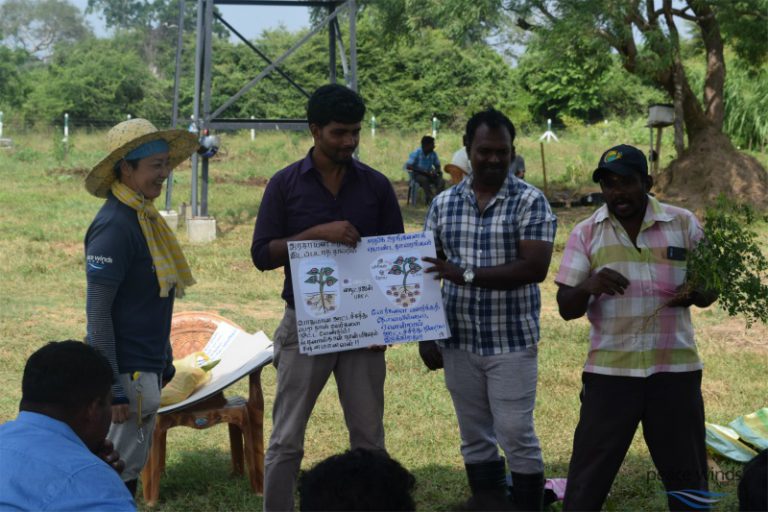
Practical training in compost making
After explaining how to improve the soil, everyone worked on making the compost. The ingredients were cow manure, chicken manure, rice bran, rice husks, rice husks, fallen leaves, mountain soil, our special fermentation-promoting porridge, and water. If chicken manure is not available, goat manure is also acceptable.
Each farmer listened intently, wrote down the amounts of the mixture, and helped with the creation of the compost.
Like a cooking show, we showed how the compost we had prepared a week ago looked and smelt. We also showed them with a thermometer that the manure had risen to a temperature of 60-70 degrees Celsius. All the farmers were amazed at the results considering its simplicity and some were even skeptical.
The compost is measured with a thermometer every day for the first week, and is stirred and moisture adjusted. The farmers seemed to be motivated and confident as they could feel the temperature rise quickly. The smell and appearance of the compost also changed noticeably as it fermented quickly with good moisture control.
Everything I needed was all around me…
At the beginning of the project, there were doubts on how many beneficiaries would be willing to participate. Then, as the pandemic occurred, the Sri Lankan rupee plummeted, and import restrictions were imposed to stop the rupee from depreciating. This cut off the supply of chemical fertilizer, which was all imported, causing the price to soar.
Therefore, this program began at the perfect time when farmers realized the importance of composting amidst a nationwide shortage. In Trincomalee, there are more farmers and fishermen compared to other parts of the country making it easier to get livestock manure and fish ala. This means most of the ingredients to make compost can be found around the house. One by one, farmers who had not shown much interest began to start producing compost. They realized that they had been investing thousands to tens of thousands of dollars to buy chemical fertilizers when all the ingredients for organic compost were in their own homes, and they could make it for just a few hundred rupees!
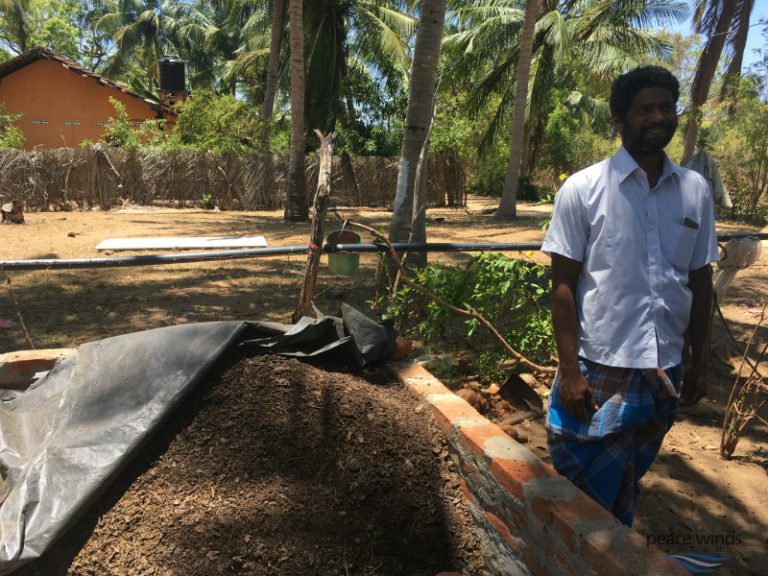
Checking the condition of the compost
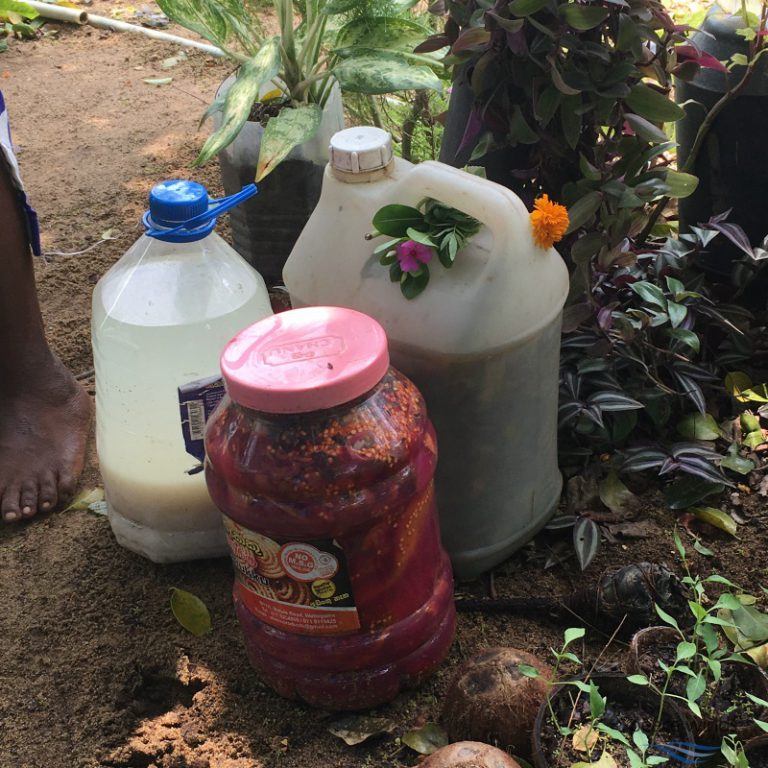
With the spread of Tanabe composting, we hope to continue our project with the dream of revitalizing the land from barren back to fertile.
We will continue to support the Sri Lankan project to diversify the income sources of local farmers and revitalize the local economy through the promotion of organic farming in Trincomalee. This project is supported by the Ministry of Foreign Affairs of Japan’s Grant Aid for Cooperation with NGOs and donations from our supporters. If you have any suggestions for how we can contribute to the revitalization of agriculture in Sri Lanka, we would be very grateful for your support.
